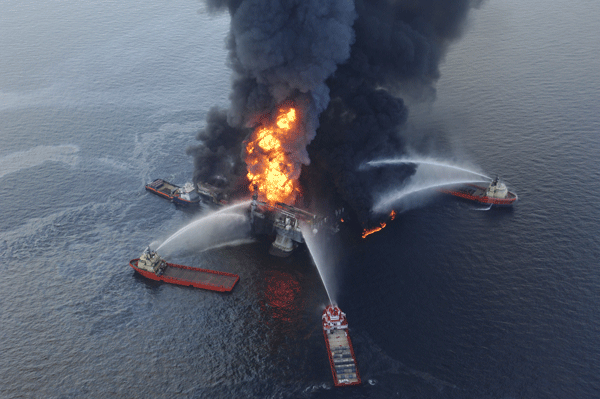Oil Rig Explosion Shouldn’t Lead to More Drilling Bans
Nicolas Loris /
The Coast Guard is searching for two people, and a number of workers are in critical condition after an oil rig explosion off the coast of Louisiana.
First and foremost, our thoughts are with the workers and their families and friends who were affected by the incident. It will be important to determine what caused the explosion and administer any penalties that may be warranted, but efforts to hijack the public policy debate by calling for blanket regulations or moratoriums on drilling fail to accurately identify the risks with offshore drilling and completely neglect the benefits from expanded oil and gas production.
Any activity—whether it’s crossing the street, flying in a plane, or driving a car—has risk. In fact, in this past national election, a voter was statistically much more at risk of getting in a car crash on the way to the polling place than actually affecting the outcome of the election.
With regard to energy, my colleague David Kreutzer calculated in 2010 that wind energy actually had higher workplace mortality than oil or coal on a per-megawatt-hour basis. Furthermore, if the U.S. stopped drilling offshore, even more oil would need to be imported, which would require more tankers coming to the U.S. from overseas, which in turn involves its own risks and costs.
The incentive to reduce risk already exists. What is not needed are sweeping regulations and bans on drilling that adversely affect the entire industry and, consequently, many employees—as well as all American energy consumers.
Tens of thousands of people die in traffic fatalities each year, but no one calls for legislation that mandates a national speed limit of 10 miles per hour. Even shortly after the Deepwater Horizon spill in 2010, seven experts from the National Academy of Engineering said that a blanket moratorium was not the answer, it would not significantly reduce the risks of offshore drilling, and it would punish the innocent. The Administration’s ban went forward anyway, punishing deepwater and shallow-water drillers.
Knee-jerk policy reactions are always prevalent in Washington, but this recent explosion is not a result of a systemic problem with the oil and gas industry or offshore drilling. As we keep the workers in our thoughts, we should remember not to legislate out of anger or for political gain but with rationality and a full understanding of the situation.

